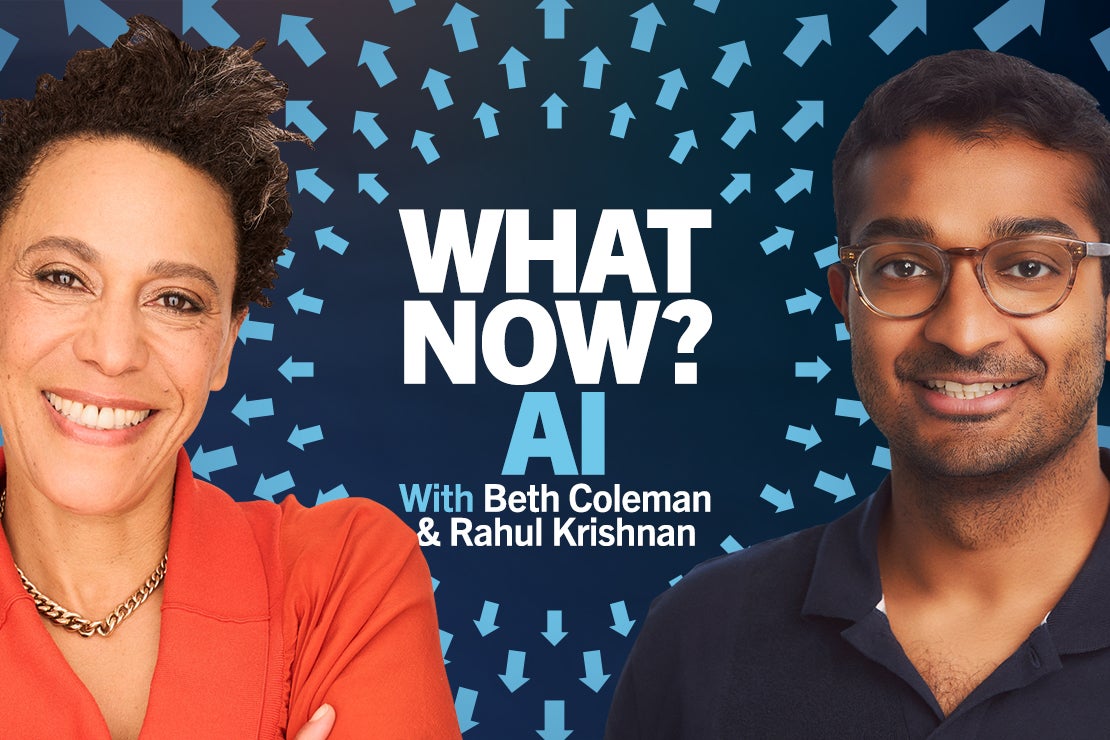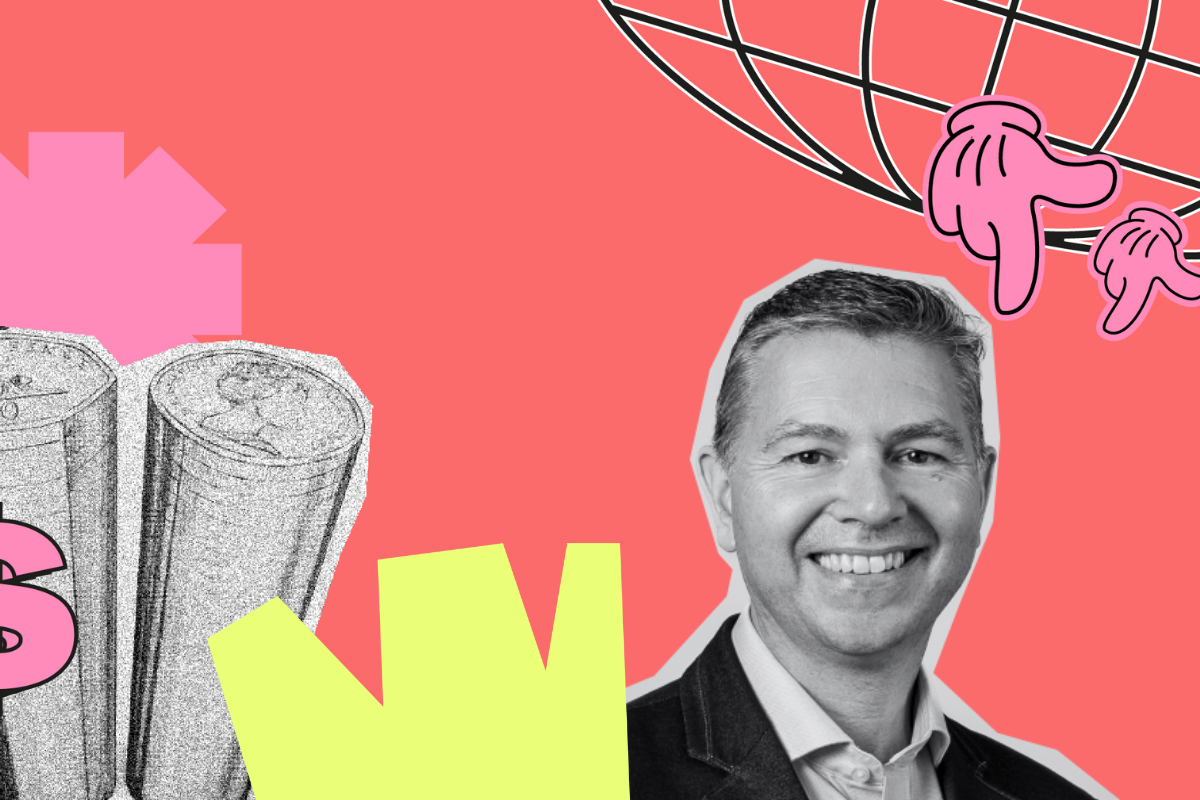[ad_1]
Speedy advances in synthetic intelligence are posing profound questions concerning the future – and about us.
Can we guarantee security and alignment inside AI programs? How would possibly AI perpetually remodel fields like well being care? What ripple results might AI have on jobs and livelihoods, together with in inventive industries?
College of Toronto researchers Beth Coleman and Rahul Krishnan discover – and demystify – these and different matters by tapping into the data of main AI specialists in What Now? AI, a new U of T podcast that launches this week.
An affiliate professor at U of T Mississauga’s Institute of Communication, Tradition, Info and Know-how and the College of Info, Coleman says she hopes the episodes assist audiences make sense of latest AI instruments and programs by chopping by “all of the noisiness and controversy that has taken over the headlines.”
“It may be complicated and technical, nevertheless it’s additionally social,” says Coleman, a analysis lead on AI coverage and praxis on the Schwartz Reisman Institute for Know-how & Society.
“What we do with AI makes a distinction and extra individuals want to have the ability to share that data.”
Coleman’s personal analysis centres round know-how and society with a deal with information and cities, AI and coverage, and generative arts. Impressed by Octavia Butler’s 1980 Xenogenesis trilogy, Coleman authored Reality Was Whatever Happened: Octavia Butler AI and Different Potential Worlds utilizing artwork and generative AI.
Krishnan, in the meantime, is an assistant professor at U of T’s division of pc science within the College of Arts & Science and division of laboratory medication and pathobiology within the Temerty College of Drugs. A Canada CIFAR AI Chair on the Vector Institute and Canada Analysis Chair in computational medication, Krishnan and his group deal with instructing neural networks about causality, constructing deep studying fashions that analyze trigger and impact from information.
“I’m excited to co-host this podcast to discover and demystify for a broader viewers AI by the lens of an completed and various set of specialists,” he says.
What Now? AI picks up the place the dialog began final yr by Geoffrey Hinton, the cognitive psychologist and University Professor emeritus of pc science who is named the “Godfather of AI.” After a lifetime spent growing a sort of AI generally known as deep studying, Hinton stepped again from his function at Google to warn about the existential threats of unchecked AI development.
Since then, there have been ongoing developments in AI analysis, technological purposes and coverage growth.
Coleman and Krishnan will deal with these and different matters with company:
- Gillian Hadfield, professor of regulation and strategic administration on the College of Regulation and the Schwartz Reisman Chair in Know-how and Society.
- Roger Grosse, affiliate professor of pc science within the College of Arts & Science and founding member of the Vector Institute.
- Christine Allen, professor on the Leslie Dan College of Pharmacy and co-founder and CEO of Intrepid Labs Inc.
- Andrew Pinto, a household doctor at St. Michael’s Hospital, Unity Well being Toronto, and affiliate professor within the Temerty College of Drugs and the Dalla Lana College of Public Well being.
- Nick Frosst, co-founder of Cohere, singer in Good Child band and a U of T pc science and cognitive science alumnus.
“The What Now? AI podcast highlights the unbelievable researchers on the College of Toronto who’re exploring the profound implications of this transformative know-how,” says Leah Cowen, U of T’s vice-president, analysis and innovation, and strategic initiatives. “These discussions deal with vital questions surrounding AI security and alignment and its myriad implications throughout varied domains.
“The college is dedicated to fostering knowledgeable discussions that may form our collective understanding of AI’s function in our society and in our future.”
Coleman says she hopes listeners come away from the podcast feeling extra grounded.
Krishnan, for his half, needs the viewers to grasp “that there isn’t a one group that has possession” over the know-how” and that “the free change of concepts and open-source instruments encourage individuals from all disciplines to return see how accessible AI could be, what AI can do for them and the way they will advance the discourse within the discipline.”
Take heed to What Now? AI on Apple, Spotify, Soundcloud, iHeartRadio and Amazon.
[ad_2]
Source link





